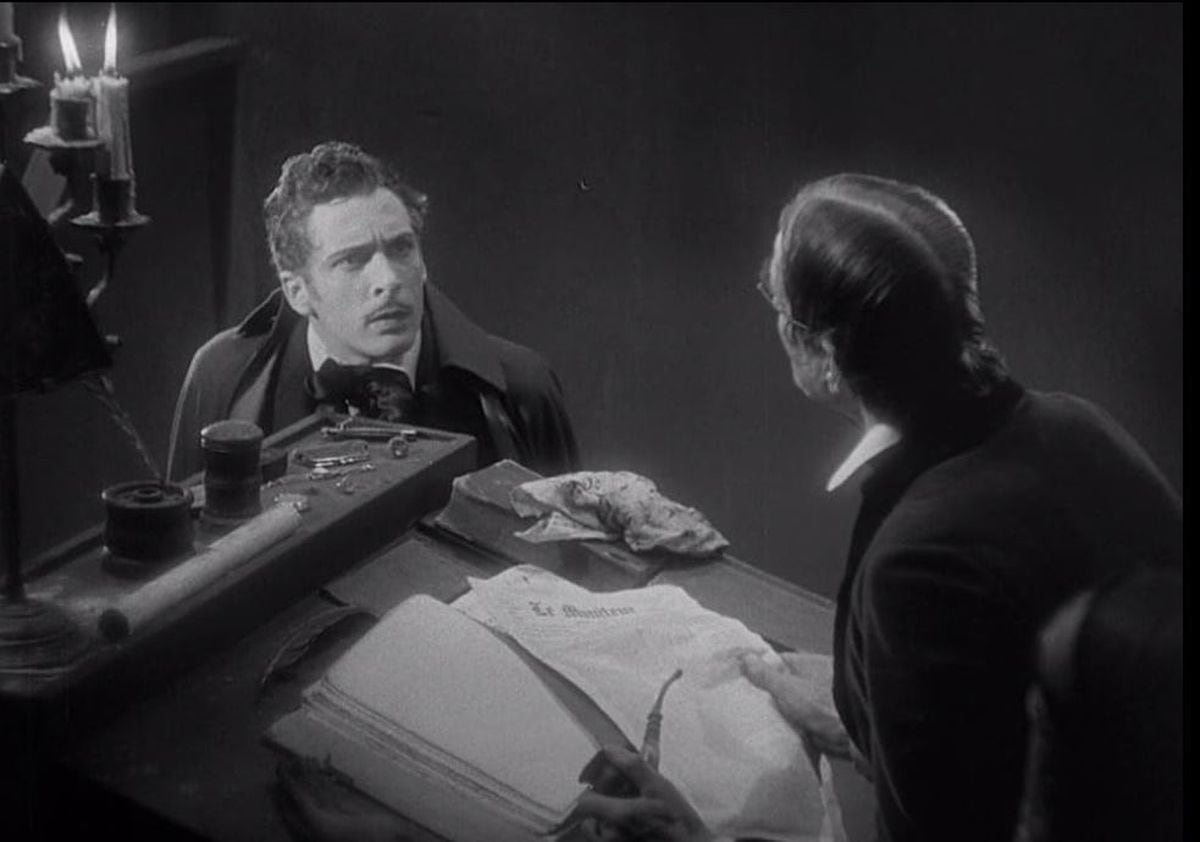Of course, it is a fad.
But all fashion has its reasons.
Americans are surprised by the success of its authors in Europe (Caldwell sells 10 times more in Paris than in New York).
I'm not surprised.
The American fictional technique is the technique of ease, so it will always be right.
But if we compare a Steinbeck with a Melville, we realize that 19th century American literature, whose greatness is universal, has been replaced by illustrated magazine literature.
American influence
I see two explanations, one obvious and the other more personal, which I give for what it may be worth.
The first is the taste for efficiency and speed, a very general taste that I do not disdain, but which is now being introduced into narrative techniques.
The story then silenced everything that was until now the proper theme of literature, that is,
roughly,
the inner life.
They describe man, but never explain or interpret him.
The result is that today a novel can be written using only memory and sight.
The rest, inner experience, meditation, knowledge of man and the world, is not necessary.
The novel is thus made available to everyone.
Who knows how to see knows how to write;
Now, everyone can see, so everyone can write, and so on.
[The other explanation] is more of an impression that I only mention with caution.
It's about the following.
We are wrong about American novels when we read them in French.
Because we have the tradition (and the hobby) of synthesis, of the understood, of the litotes, and we attribute to that technique, which never says anything important, the intention of saying lots of things that perhaps it never meant.
We read
Of Mice and Men
with the same mentality with which we read
The Princess of Clèves
.
But the men in the American novel, unlike the prince de Clèves, are actually elemental beings.
If the prince de Clèves does not say anything, it is because he feels such strong pain that it will kill him.
If Steinbeck's George says nothing, it is because he has nothing to say, but an exorbitant, confused and powerful feeling that will never reach the truth of language.
An art more elemental than universal
Exactly, it is not universal but at the elemental level.
This technique is incomparable to describe a man with no apparent inner life (and I have used it).
But to generalize its use, as we are now seeing, would be to suppress nine-tenths of what constitutes the wealth of art and life.
It would be an impoverishment.
The literature we read (with the exception of Faulkner and two or three others who, like him, have no success there) is a document of the first order, but it has only a remote relationship with art.
A social explanation
Things in art always have a social explanation.
What happens is that it does not explain anything serious.
However, it seems clear to me that the commercialization of literature, the advertising procedures, the prospect of making millions with a single book if it is elementary and accommodating enough to become a
best seller,
are partially valid explanations.
The literati are not saints, and even if they were saints they would not be literati.
How many of the European writers would hesitate between the position of the millionaire bookmaker and that of the great unknown talent?
If there are great writers in America today, chances are we don't know them.
Think of the bitter indifference and independence of the great Melville, unknown to his contemporaries, passed away in mediocrity, ignored among his masterpieces.
Think of Poe, whose first recognition you received in Europe;
in Faulkner, with a circulation of a few thousand copies, while of that inconceivable
Amber
[
Kathleen Winsor novel
Forever Amber
] millions of copies are published.
Hemingway, up for debate
Give Hemingway his due.
Fiesta
is a good book.
But his book on Spain is a children's book compared to
Malraux's
La Esperanza
.
There's nothing more disappointing to me than putting that Metro-Goldwyn-Mayer love story into the prodigious Spanish adventure.
Hollywood and Guernica don't hit it off.
Bet on rigor
In America I have found both the motives for that literature and the promise that they will go further, if they haven't already.
And I feel in solidarity with some of those reasons (in my country, in North Africa, they also live in that brief and violent way) and with that promise.
America is brimming with forces not yet used and it is still going to astonish the world greatly.
But it can amaze him with the easiest and most violent means (in the sense that a color is said to be violent) or, on the contrary, by resurrecting that calm and unbridled genius that he has already given to Melville and Hawthorne.
America will choose, but the best we can do for her is not to follow her in her most vulgar works, but rather to try to stay in that rigorous region of art where her great minds already have a place.
European exemplarity
We can no longer be an example for America.
It has its own path and we have ours, which is no longer easy.
But we can tell her sometimes that she is wrong, to help her, and that in the end she is right.
Art is the only terrain where honesty and exacting standards are sometimes rewarded.
The Grapes of Wrath
and
The Way of Tobacco
will have been forgotten
by now
,
but there will still be talk of
Moby Dick
and
The Scarlet Letter
.
Our role is to say it if we think about it.
Let's add a few nuances.
It is not always the best works that have the most influence.
But the worst works of literature sometimes serve as a vehicle for the good that is in the greatest.
And it happens, to close the circle, that, thus, bad influences promote great works.
In this way there is in art a justice or another miracle.
conclusion
Let's not lose our cool.
Excerpts from Albert Camus' responses to a survey promoted by Jean Desternes with the title 'What do you think of American literature?'
They are part of the volume
'The night of truth.
The articles of Combat (1944-1947) ',
which, translated by María Teresa Gallego Urrutia, the Debate publishing house publishes on January 21.














